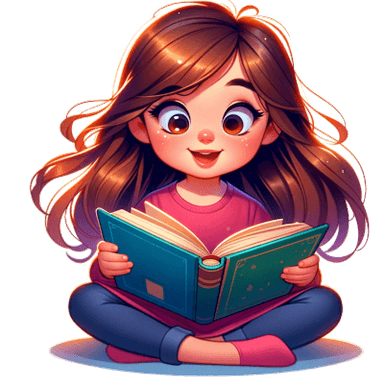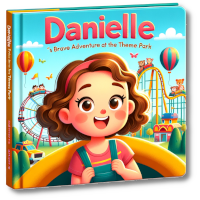Reading with children
a blog by Magic Tales

Brave Hearts: Exploring the Psychology of Courage in Children's Literature
Stories have the magical ability to impact our minds and hearts, no matter the age of the reader. More often than not, the elements of courage and bravery form the backbone of children’s literature. As a parent, mentor, or guardian, you may wonder about the role these themes play and their influence on young minds. So let's delve into understanding the powerful psychology of courage in children's literature.
Courage and the Young ProtagonistChildren's literature is filled with brave and courageous protagonists, from Harry Potter to Matilda and from Percy Jackson to Katniss Everdeen. These characters frequently face challenging situations, showcasing resilience and courage that make them unforgettable heroes. Believe it or not, young readers learn from these fictional characters, and it shapes their mindset and behavior in reality. Given the right narrative, these characters can inspire children to face their fears and overcome their difficulties.
The Psychology Behind Courageous CharactersWhy do these characters resonate so deeply with children? The answer lies in the psychology of modeling. Children learn behaviors and emotional responses by observing others around them - a phenomenon psychologists call 'modeling'. While this process happens mostly with adults and peers in the child's environment, fictional characters from literature also serve as influential models. Through children's literature, young readers vicariously experience these courageous acts of perseverance and get inspired to mimic such behaviors.
Courage and the Scope of EmpathyThe psychology of courage also ties into empathy. When children read about diverse characters overcoming adversity, they often put themselves in the character’s shoes. This builds empathy, allowing children to understand and connect with characters who may be very different from themselves. This capacity for empathy, in turn, can inspire bravery, as children learn that everyone fights battles - big or small - and it's okay to show courage in the face of adversity.
Encouraging Courage: The Role of Children's Literature AuthorsChildren's literature authors play an integral part in promoting the idea of bravery. They artistically craft scenes in which characters show courage and resilience. These moments aren't just thrilling to read but also plant seeds of bravery in children. When authors handle these scenarios mindfully, they can effectively convey that courage doesn't always mean doing grand gestures — sometimes, it's about standing up for oneself, admitting one's mistakes, or helping someone else.
In a nutshell, the psychology of courage in children’s literature is a powerful instrument that can instill resilience, bravery, and empathy in young readers. As a parent or guardian, selecting books with courageous characters for your child's reading list can help shape their behavior and attitude towards their fear and challenges.
Want a personalized book to read with your child about Courage?
Takes as quickly as 30 seconds to create
Create a book about Courage

